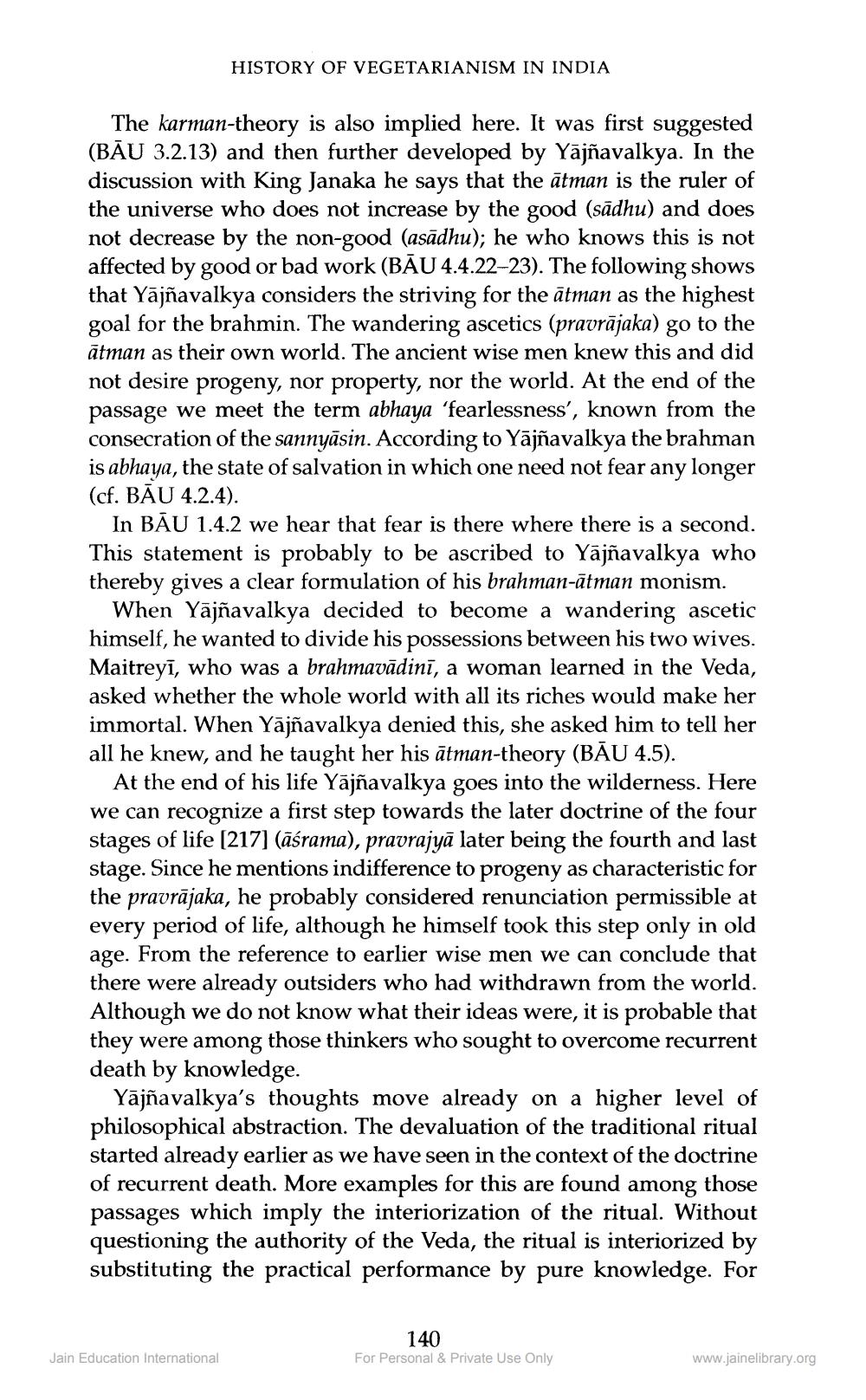________________
HISTORY OF VEGETARIANISM IN INDIA
The karman-theory is also implied here. It was first suggested (BĀU 3.2.13) and then further developed by Yājñavalkya. In the discussion with King Janaka he says that the ātman is the ruler of the universe who does not increase by the good (sādhu) and does not decrease by the non-good (asādhu); he who knows this is not affected by good or bad work (BĀU 4.4.22-23). The following shows that Yājñavalkya considers the striving for the ātman as the highest goal for the brahmin. The wandering ascetics (pravrājaka) go to the ātman as their own world. The ancient wise men knew this and did not desire progeny, nor property, nor the world. At the end of the passage we meet the term abhaya 'fearlessness', known from the consecration of the sannyāsin. According to Yājñavalkya the brahman is abhaya, the state of salvation in which one need not fear any longer (cf. BĀU 4.2.4).
In BĀU 1.4.2 we hear that fear is there where there is a second. This statement is probably to be ascribed to Yājñavalkya who thereby gives a clear formulation of his brahman-ātman monism.
When Yājñavalkya decided to become a wandering ascetic himself, he wanted to divide his possessions between his two wives. Maitreyi, who was a brahmavādini, a woman learned in the Veda, asked whether the whole world with all its riches would make her immortal. When Yājñavalkya denied this, she asked him to tell her all he knew, and he taught her his ātman-theory (BĀU 4.5).
At the end of his life Yājñavalkya goes into the wilderness. Here we can recognize a first step towards the later doctrine of the four stages of life [217] (āśrama), pravrajyā later being the fourth and last stage. Since he mentions indifference to progeny as characteristic for the pravrājaka, he probably considered renunciation permissible at every period of life, although he himself took this step only in old age. From the reference to earlier wise men we can conclude that there were already outsiders who had withdrawn from the world. Although we do not know what their ideas were, it is probable that they were among those thinkers who sought to overcome recurrent death by knowledge.
Yājñavalkya's thoughts move already on a higher level of philosophical abstraction. The devaluation of the traditional ritual started already earlier as we have seen in the context of the doctrine of recurrent death. More examples for this are found among those passages which imply the interiorization of the ritual. Without questioning the authority of the Veda, the ritual is interiorized by substituting the practical performance by pure knowledge. For
140 For Personal & Private Use Only
Jain Education International
www.jainelibrary.org




